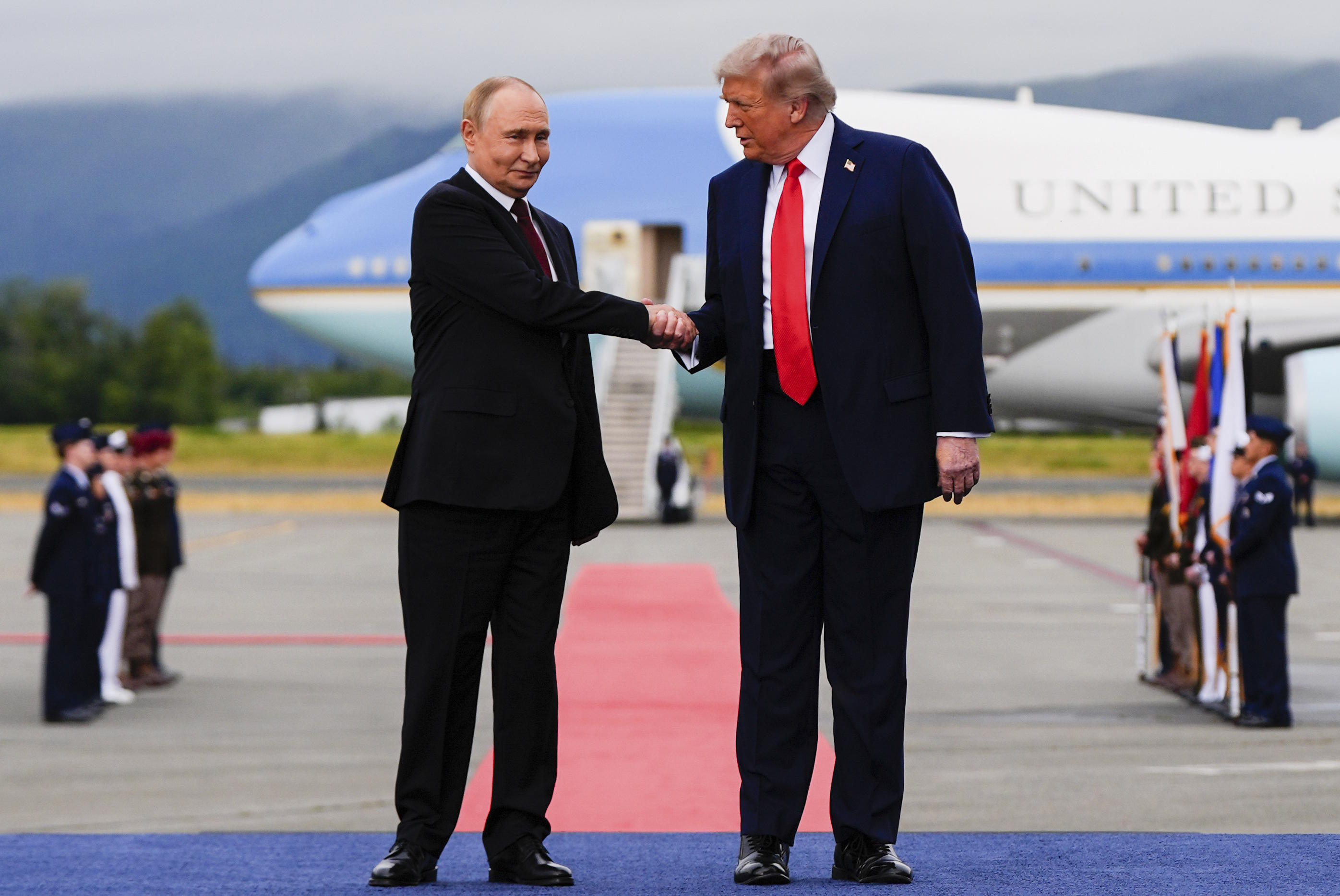USA and Russia are finalizing a 28-point peace plan outside of Ukraine and the European Union. The idea is to present it before the end of the month, almost as a "fait accompli," taking advantage of the weakness of Volodimir Zelenskyy after the corruption scandals shaking his Government and his collaborators. A plan similar to that of Gaza, both in structure and even language, as well as in being done almost bilaterally, outside of the invaded party. This was reported by Axios and Politico in Washington, citing officials from the U.S. Administration and Russian negotiators. Hours later, the Russian Foreign Ministry denied that any agreement had been reached to end the war.
According to reports, the 28 points "are grouped into four main categories: peace in Ukraine, security guarantees, security in Europe, and future U.S. relations with Russia and Ukraine," something well established since the return of Donald Trump and outlined in the August meeting between both leaders in Alaska. The two key figures are Trump's special envoy, businessman Steve Witkoff, and the Russian envoy, Kiril Dmitriev, head of Russia's sovereign fund. "We feel that the Russian position is truly being heard," Dmitriev told Axios.
Some U.S. media outlets report that the framework agreement they intend to impose on Ukraine (and Europe) includes some of the maximalist demands issued by the Kremlin since 2022. Although specific territories have not been mentioned in the published information, it is assumed that Ukraine would have to renounce certain regions, presumably Donetsk and Lugansk. The alleged secret agreement would also require Ukraine to significantly reduce its army, even by half, and the possibility of giving up certain weapon systems.
Although they have started to be informed of the content, "the new peace plan, apparently, has not had the direct participation of Ukraine or U.S. allies in Europe. And we still do not know the details about the most contentious issues surrounding the Russian annexation of vast territories of Ukrainian land, the kidnapping of tens of thousands of Ukrainian children, or the security guarantees offered to Ukraine after the events," Politico reports.
Pieces have moved quickly in a short time. Both envoys met in Miami, along with their delegations, for three days at the end of October. In addition, Witkoff discussed part of the plan with Zelenski's chief national security advisor, Rustem Umerov, in the same city just this past Monday. On the other hand, Army Secretary Dan Driscoll, accompanied by two four-star generals and other senior U.S. military officials, is currently in Kiev to meet with the Ukrainian president and his team. They, in turn, have departed for Istanbul, where they will not only meet with Recep Tayyip Erdoan but were also scheduled to meet with Witkoff, who canceled his trip at the last minute. "We know that the Americans are working on something," confirmed a Ukrainian official to Politico.
Dmitriev explained to Axios that the basis is to take the principles agreed upon by Trump and Putin in Alaska in August and develop them "to address the conflict in Ukraine, but also how to restore relations between the United States and Russia [and] address Russia's security concerns." According to Dmitriev, there will be no meeting between Trump and Putin, probably in Budapest, until there is a complete document. Even the Kremlin lowered expectations on Wednesday. "So far, there is no news to report," spokesman Dimitri Peskov said regarding a possible end to the war.
The White House has not officially commented on the issue, but a message mistakenly posted by Witkoff on the X social network implies that the information is correct. In his first 10 months in office, Trump has changed his mind and tone repeatedly. Convinced that he would end the war "on his first day in the Oval Office," he has realized that it is much more challenging than he thought, and his influence over Putin is more limited than he believed. When they speak on the phone, everything sounds good, but then the Russian leader does the opposite.
Trump, who respects Putin and considers him a victim of maneuvers and 'fake news' from the Democratic Party, like himself, started off very tough and critical of Zelenski. But after the live confrontation in the Oval Office that went viral, his tone has changed. He no longer attacks, insults, or belittles him. On the contrary. And a few weeks ago, for the first time, he imposed economic sanctions on the main Russian oil and energy companies. But his position is erratic, he resists being tough on Moscow, and there are too many actors involved. This has led Lieutenant General Keith Kellogg, the special envoy for the war in Ukraine, to inform his team that he will leave his position in January. Fed up with the twists and being ignored or excluded, according to Reuters.
The president wants to resolve the Ukrainian issue as soon as possible. He believes it is a waste of money, diverting resources that should be dedicated to China and also angering the base of the Make America Great Again movement, which is already stirred up by the Epstein Case. Resolving the Ukrainian crisis would not only give him a significant victory externally but also internally, and shift the focus of the media, which these days only talk about Epstein and the documents that the Department of Justice must declassify. The U.S. Congress approved the necessary legislation for this, and only the president's signature is pending.
